the U.S. Department of State issued a travel advisory urging U.S. citizens to reconsider traveling to China due to concerns over “the arbitrary enforcement of local laws, including in relation to exit bans, and the risk of wrongful detentions.” While these risks are indeed present and unsettling, they can create a perception of China as a dangerous country to visit. However, the reality is that China is an extremely safe destination, with friendly services, breathtaking scenery, and, of course, a renowned culinary culture. Focusing solely on the political risks may cause people to overlook other important factors that are more immediately relevant when travelling in the country.
According to data released by the National Immigration Administration of China, in the first half of 2024, 14.635 million foreigners entered the country through various ports across the country, a year-on-year increase of 152.7%. Among them, 8.542 million people entered the country visa-free, accounting for 52%, a year-on-year increase of 190.1%. Behind this, it is inseparable from the promotion of a series of policies.
Related Reading:144-hour Transit Visa Exemption in China ___What is 72 hour visa free transit in China?
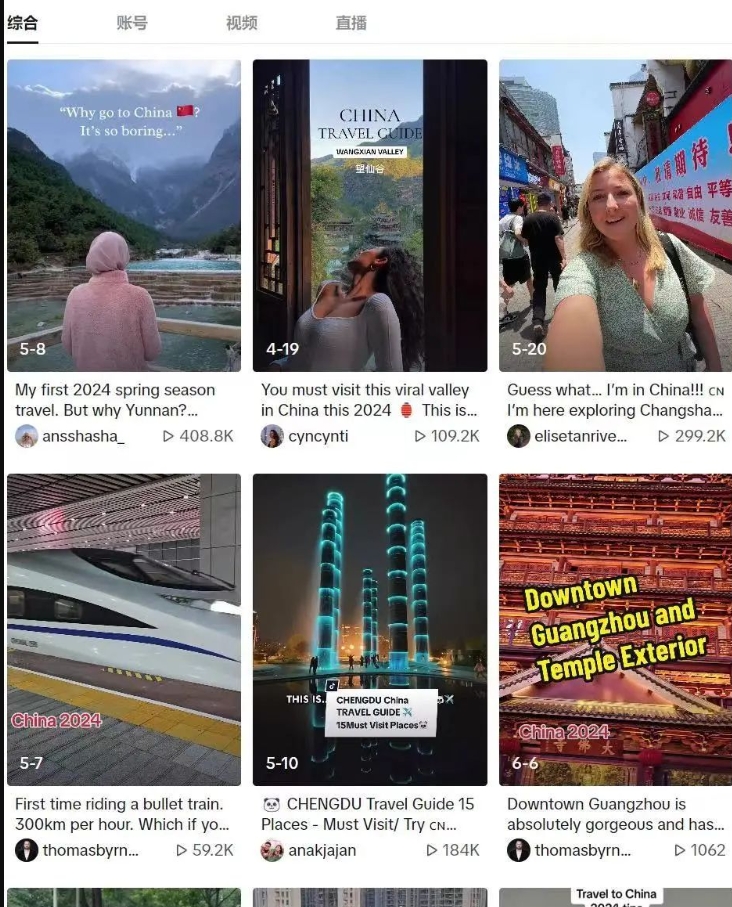
Short video blogger showcase
On overseas social platforms, in the videos of many foreign bloggers traveling to China, the high-frequency words appearing in the titles are “unexpected”, “never expected”, and “not what we expected” (all meaning “unexpected”).
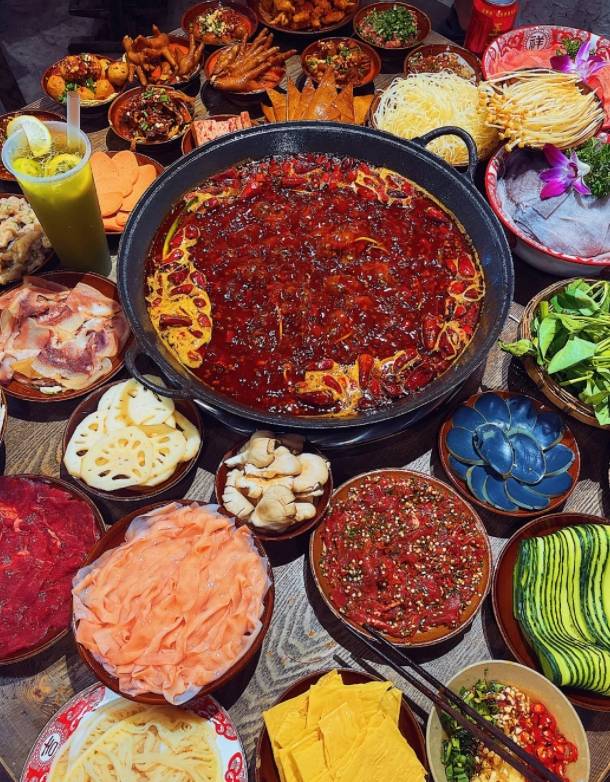
Chongqing hotpot

Night market stalls
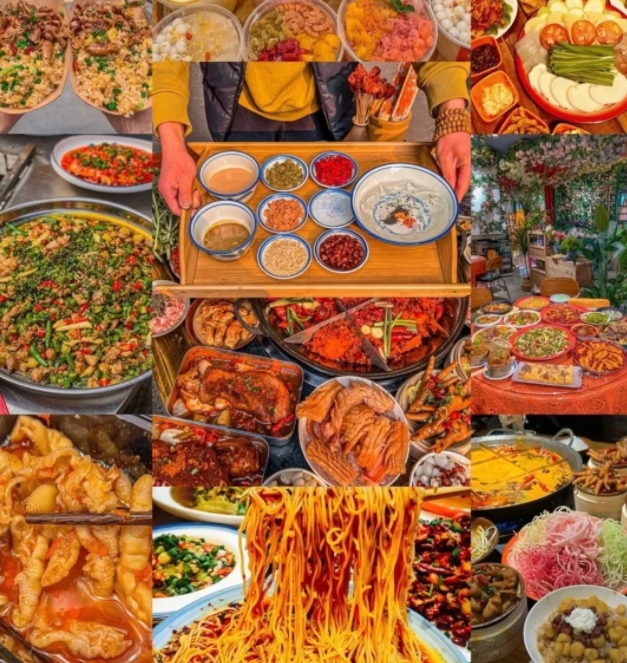
Part of the Night Market Cuisine

Traveling by high-speed rail. Unbelievable! It’s so fast!
A blogger named Ken Abroad from Germany said after finishing his trip in Shanghai: “To be honest, I thought it would be a bit chaotic here because this is a metropolis with nearly 25 million people. The roads must be very chaotic and disorderly.” But to his surprise, it is “super quiet” here.
The enthusiasm and friendliness of the Chinese people are also points that many foreign bloggers mention and that move them. In the shots of some bloggers, whether in big cities or small towns in China, there are many ordinary yet warm moments: uncles on the side of the road will invite you to sit down and chat, diners in the same store will 欣然 accept sharing a table, and drivers on the road are also happy to give people a ride… These real, simple yet heart-warming moments become precious memories for bloggers.
The enthusiasm and friendliness of the Chinese people often move blogger Anna. She said: “Sometimes when I want to go to a place but can’t explain it clearly, passers-by will patiently guide me. Even someone who is actually going in the opposite direction will first spend a long time taking me to my destination.” Canadian couple Steve and Iana are relatively well-known bloggers. They basically didn’t make any travel plans. When they arrived in China, they communicated only by gestures. Steve said: “The Chinese people are very enthusiastic and outgoing. Although there is a language barrier, they will do their best to help you. Moreover, public transportation in China is always reliable, affordable, and available at any time. You can take the subway for only 1 dollar.”
Traveling is not only to encounter beautiful scenery but also to experience the local customs and delicious food. Chinese culture and cuisine are also key incentives for foreigners to travel to China. Whether it is the charm of the Han and Tang dynasties in Xi’an, the leisure and comfort in Sichuan and Chongqing, the prosperous modernity of Shanghai, or the exotic charm of beautiful Xinjiang, every aspect of China is full of charm and grace.

Tourists display a kind of Chinese Baijiu
In addition to first-tier cities such as Beijing, Shanghai, Guangzhou, and Shenzhen being loved by foreign tourists, China’s internet-famous cities have long been popular both at home and abroad. Chongqing with its “cyberpunk” style has become the favorite of foreigners. “Yangshuo’s scenery is better than that of Guilin” is on their must-check list in life. Zhangjiajie, the shooting location of “Avatar”, has also become a place that foreign bloggers dream about.
Blogger couple Eoin and Aisling spent 36 hours extremely visiting the mountain city. Chongqing with the characteristics of an “8D” city structure made the couple see 22 floors above ground and 22 floors underground. They bluntly said that Chongqing is a “cyber city.”
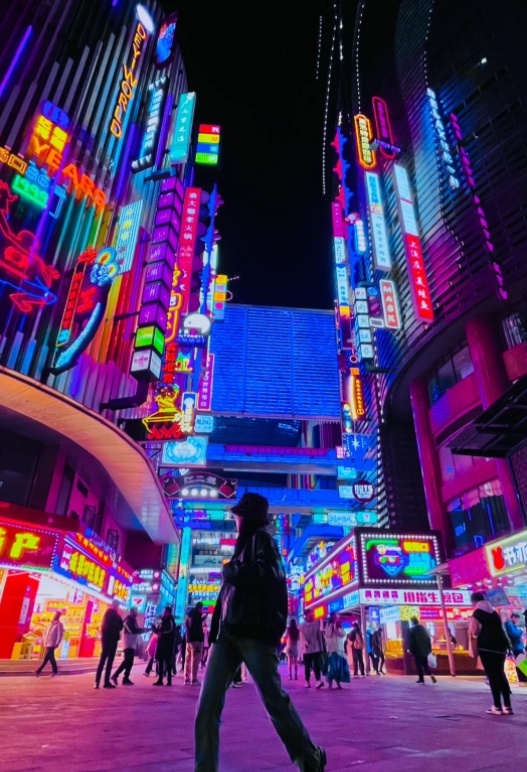
Cyber Chongqing
On the eve of May Day, an Irish couple arrived at Chengdu, the first stop of their trip to China. As soon as they got off the plane, they met enthusiastic Chengdu citizens who pointed the way in fluent English. During their city walk on the streets of Chengdu, the guokui (a kind of baked pastry) they bought casually made the couple love it at the first bite and exclaimed, “I can eat this for a lifetime!”
Foreign travel bloggers record their experiences in China through methods such as “vlogs” and “live broadcasts”, and spread the local customs and cultural characteristics of different regions in China that they have personally felt to every corner of the world through short videos. The interaction between foreign bloggers and netizens at home and abroad in the comment area makes cultural exchanges more direct and in-depth. Many foreign netizens thank these bloggers for exploring the real China and letting everyone see the truth.
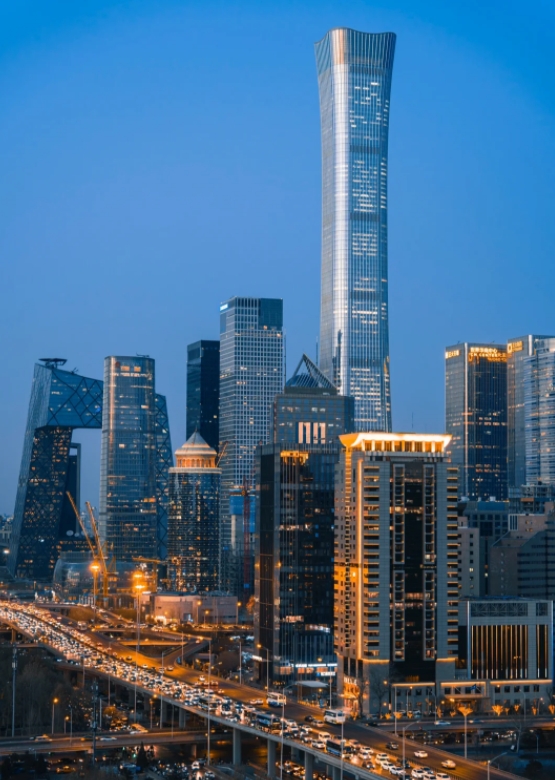
A corner of Beijing CBD
There is an old Chinese saying that “seeing is believing.” Nothing can make people of all countries intuitively feel the image of China more than tourism.